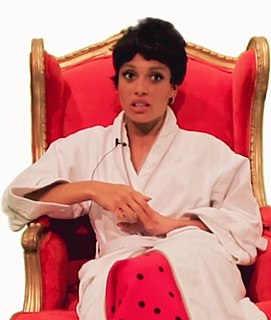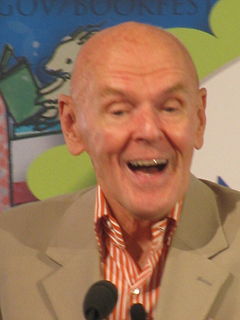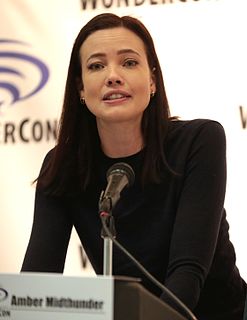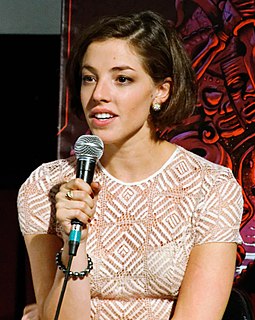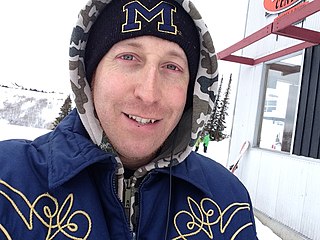A Quote by Nicole Holofcener
My grandma has said many of the things her character says. But she was much nicer! I made her meaner for dramatic purposes.
Related Quotes
One of my aunties inspires me beause of how easily she shows her emotions, and she isn't ever afraid to cry. My mum, for her work ethic - she might not show her emotions in public very much, but she's a total power woman. My grandma, who watched four of her children die before her, she's a powerhouse.
She realized how many of her beliefs were either unrealistic or belonged to her deceased parents and her ex-husband. She also realized that her expectations for herself and others were sometimes too rigid. She was trying to live up to what everyone else said was best for her, which made her depressed and hard to be around at times. Once she changed her beliefs about herself and others, she began to smile more and enjoy life.
I'll just be your brother from now on." he said, looking at her with a hopeful expectation that she would be pleased, which made her want to scream that he was smashing her heart into pieces and he had to stop. "That's what you wanted, isn't it?" It took her a long time to answer, and when she did, her own voice sounded like an echo, coming from very far away. "Yes," she said, and she heard the rush of waves in her ears and her eyes stung as if from sand or salt spray. "That's what I wanted.
He took her in his arms right away. "I'm so sorry," he murmured in her ear. He rocked her, saying it over and over. But no matter how many times he said it, no matter how much she knew he meant it, the words stirred around in her ear but didn't get into her brain. Sometimes he could comfort her. Sometimes he said what she needed, but today he couldn't reach her. Nothing could.
Grandma Mazur stood two feet back from my mother. "I gotta get me a pair if those," she said, eyeballing my shorts. "I've still got pretty good legs, you know." She raised her skirt and looked down at her knees. "What do you think? You think I'd look good in them biker things?" Grandma Mazur had knees like doorknobs.
Her [Eleanor Roosevelt] father was the love of her life. Her father always made her feel wanted, made her feel loved, where her mother made her feel, you know, unloved, judged harshly, never up to par. And she was her father's favorite, and her mother's unfavorite. So her father was the man that she went to for comfort in her imaginings.
As he was about to leave, she said, "Murtagh." He paused and turned to regard her. She hesitated for a moment, then mustered her courage and said, "Why?" She though he understood her meaning: Why her? Why save her, and now why try to rescue her? She had guessed at the answer, but she wanted to hear him say it. He stared at her for the longest while, and then, in a low, hard voice, he said, "You know why.
I pu my finger to her lips. "You have to hush a minute so that I can tell you something." "What?" she says, bites my finger. I look at her. "I love you." She gets quiet, the kind of quiet that sinks into her, softens her. "Well that works out," she finally says, her voice deeper and breathless, her eyes moist, "because I love you too." She turns, leans against my arm, and settles into me.
I have a black Grandma and white Grandma. My white Grandma lives in Fort Lauderdale, paints, and teaches bridge. She's wonderful. My black Grandma, equally wonderful, is my neighbor across the street, Bobbie, who's always insisted that I call her Grandma, and honestly, over the years she's become a real Grandma to me.
What? she said once to herself, and then once aloud, What? She felt a total displacement, like a spinning globe brought to a sudden halt by the light touch of a finger. How did she end up here, like this? How could there have been so much - so many moments, so many people and things, so many razors and pillows, timepieces and subtle coffins - without her being aware? How did her life live itself without her?

